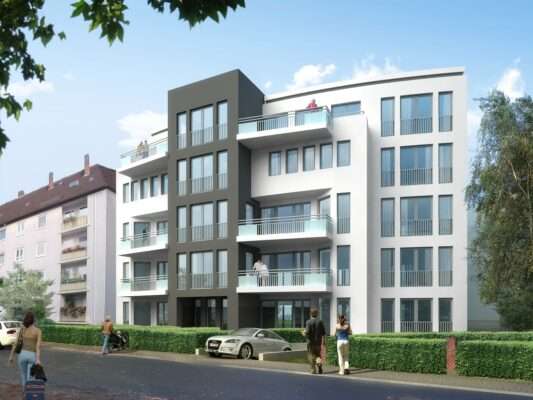Multifamily Housing: Definitions, Examples, and Opportunities
This guide addresses the following questions about the multifamily real estate sector.
What are the trends in multifamily home investing?
What does a multifamily home mean?
Is a multifamily dwelling unit commercial or residential?
What are the types of multifamily homes?
Who are the top multifamily companies?
The commercial real estate multifamily sector experienced a strong start in 2022. Vacancies dropped to 2.3%, down by 2.5 percentage points compared to the previous year, according to a Q1 2022 CBRE report. Additionally, new construction has added resulted in bringing about 66,400 units. Investors have noticed these positive developments, with total investments reaching $63B.
If you want to sell into the multifamily industry, it is essential to find the right contact — and filter out those that don’t cover the suitable asset class. Here is a quick guide on the basics of multifamily commercial real estate investing for those interested in entering the market:
What Is Considered a Multifamily Home? (And What Is Commercial vs. Residential MFH?)
Multifamily properties consist of multiple apartment units, which can be managed by the investor or another entity, such as a management company, to manage building maintenance. Multifamily homes can be either residential or commercial, and we’ll explain the difference.
Multifamily residential versus commercial
The number of units determines whether an asset is classified as a residential or commercial multifamily property.
Residential multifamily buildings consist of two to four units, such as duplexes.
Commercial multifamily properties consist of five or more units.
A single-family home is a property on a piece of land designated to have rooms and utilities for one family.
Single-family homes aren’t considered multifamily properties. However, buildings with shared walls and separate utilities would classify the property as multifamily even when the homes are attached to the same land.
5 Common Types of Multifamily Buildings
Multifamily properties may differ based on ownership and the offerings for their tenants. Here is a look at five common types of multifamily investment properties:
Apartments have an independent building owner that rents out individual units to tenants. Buildings may contain only units or offer shared amenities for tenants, such as a pool or a fitness center.
Mixed-use developments are adjacent to office, retail, and dining spaces, which provide access to workplaces, shops, restaurants, and transit.
Age-restricted housing includes housing for seniors 55 and older.
Low-income housing is subsidized housing offered through government programs and isn’t compared to market-rate housing.
Condominiums, co-ops, and townhomes are centered around the community and often come with shared amenities for residents. In a co-op, the investor purchases a share of the building and is given a long-term lease. The investor owns condos and townhomes and has to contribute to mortgage and property taxes.
Why Are Multifamily Units Appealing?
Multifamily assets appeal to some investors due to their liquidity — or how fast the property can be sold at market value. Additionally, multifamily properties provide a consistent income stream through tenant rent payments, and the property can often increase in value over time.
Multifamily Housing Trends: Focus On Live-Work-Play
Over the last decade, the multifamily sector has been experiencing a rise in mixed-use spaces, with renters preferring their homes, work, and entertainment all in one place. RentCafe insights showed that as of June 2022, the number of apartments in live-work-play communities increased from 10,000 flats in 2012 to 43,700 in 2022, indicating that this trend isn’t likely to slow anytime soon.
Key Multifamily Statistics
As of 2019, there were over 43.9 million multifamily residences.
As of 2019, New York-New Jersey-Pennsylvania had the most prominent apartment stock, with around 2.4 million units.
In 2021, $335B was invested in multifamily assets.
As of January 2022, the average cost of constructing an apartment building in the U.S. was $11M.
As of April 2022, New York had the most multifamily residences.

